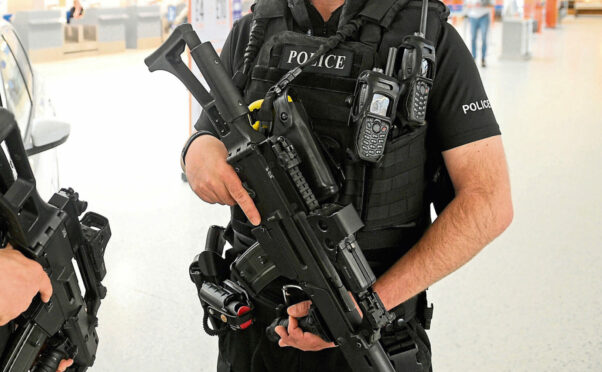
The police call centre involved in the M9 crash tragedy and Sheku Bayoh’s death is facing a dangerous staffing crisis, according to sources.
Only six tactical firearms response commanders are in post at the Bilston Glen centre when there should be 10. Two of the 10, all inspectors, are required to be on duty at any one time, 24 hours a day, seven days a week, to shape the response to the most serious incidents involving armed officers and other specialist teams.
The staffing shortage is said to have left them working 12-hour shifts, going home then returning to work for another shift just 12 hours later.
One source said: “These highly trained specialists are there to decide what level of response will be deployed to the most serious unfolding incidents, whether to send firearms officers or specialist teams out to a call.
“The centre covers the whole eastern side of Scotland, from Edinburgh to Fife, from the Borders to Stirling, a huge area. Their response to incidents are the most scrutinised in the force because these are the senior officers who decide whether to send in tactical firearms teams or not.
“There are supposed to be 10 inspectors to cover that area. But currently, only six are fully trained and operational. The requirement to have two such officers on duty in the command centre has become increasingly difficult since the end of last year.
“The pressure and working conditions have become so stressful, staff have been going off sick. There is no opportunity for breaks or time off, leaving those handling life and death calls almost on their knees.”
In 2021, Police Scotland was fined £100,000 for systemic failures after a call alerting officers to a crashed car was not logged properly.
The force admitted their failings “materially contributed” to the death of Lamara Bell, who was left in the car by the M9 for three days after the incident was reported to police in 2015. The driver, her boyfriend John Yuill, 28, died in the crash. She later passed away in hospital.
The Bilston Glen control room was also where Police Scotland directed officers responding to 999 calls in the case of Sheku Bayoh, 31, who died while being detained by officers in Kirkcaldy in 2015.
A former officer said: “Mistakes at that level because of tiredness or stress can mean the difference between life or death for the victims of our most serious crimes, as well as for the officers being sent to any such incident.
“If a wrong call is made and a decision is taken not to send a firearms unit or a specialist team, the result could be disastrous. These decisions are among the most highly scrutinised within Police Scotland, with the Police and Investigations Review Commissioner examining every single call-out where an officer points a firearm.”
David Kennedy, head of the Scottish Police Federation, said he had been made aware of several vacancies at Bilston Glen and added: “We have been assured that these important roles will be covered by other command areas in the meantime.”
Police Scotland said: “As a national service we are able to flex our resources which means we this important role is filled at all times to ensure continuous coverage and to protect Scotland’s communities.”

Enjoy the convenience of having The Sunday Post delivered as a digital ePaper straight to your smartphone, tablet or computer.
Subscribe for only £5.49 a month and enjoy all the benefits of the printed paper as a digital replica.
Subscribe